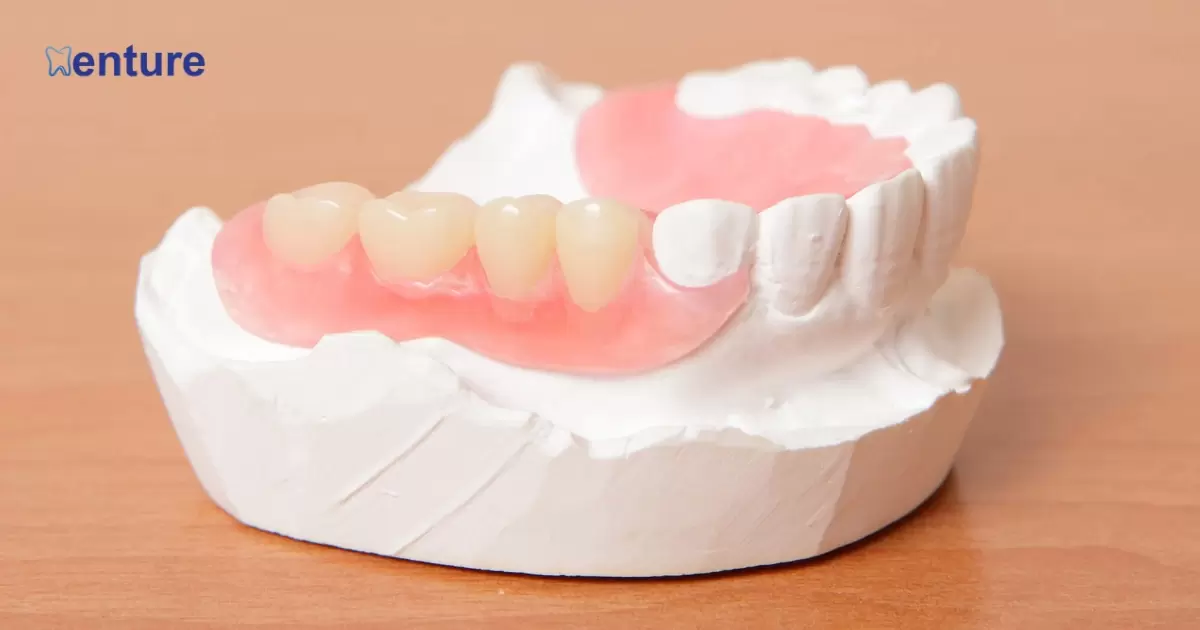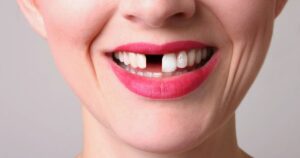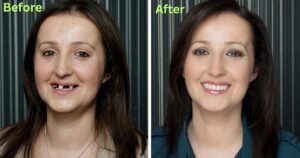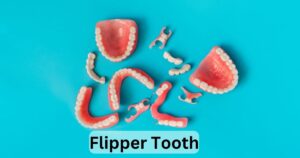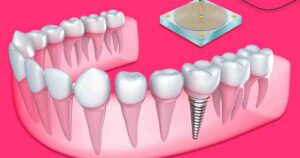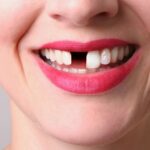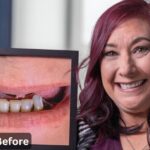Partial dentures are removable dental appliances. They replace missing teeth when some natural teeth remain. They have metal or plastic clasps that attach to existing teeth for support. Partial dentures help improve chewing and maintain a natural smile.
Ever wondered how partial dentures stay in place? It’s like a clever puzzle that keeps your smile intact. These dental wonders rely on a combination of gravity and snug fits. Imagine them as the missing piece of a jigsaw puzzle, clasping onto your natural teeth with precision.
Now that you know the secret behind how partial dentures stay in place, you can make an informed choice about your dental care. If you’re considering partial dentures, consult your dentist to explore the best options tailored to your unique smile. Your journey to a comfortable and confident smile starts with a simple conversation—schedule that appointment today!
How Do Dentures Stay in Place?
Dentures stay in place through a few key methods. First, the upper denture rests on the palate, which creates suction to keep it stable. Lower dentures rely on the natural curve of the jaw and gravity to stay put.
Some people use denture adhesives for extra security. These products create a bond between the denture and your gums. Regular dental check-ups are essential to ensure your dentures fit well and remain stable, allowing you to eat, speak, and smile comfortably.
| Type of Dentures | How They Stay in Place |
| Partial Dentures | Snug fits and clasps on natural teeth provide support. |
| Complete Dentures | Upper denture relies on palate suction, lower dentures use the curve of the jaw and gravity. |
| Lower Suction Dentures | Create a seal with gums and use natural suction to keep it in place. |
| Dentures Over Implants | Snap onto sturdy implants in the jaw for stability. |
| Denture Adhesive | Adhesive creates a bond between dentures and gums to prevent slipping. |
Partial Dentures
Partial dentures are custom-made dental appliances used to replace missing teeth when some natural teeth remain. They’re designed to fit snugly in your mouth and are typically made of metal or plastic. These removable devices not only help restore your smile but also aid in chewing and speaking more comfortably. Sometimes, a dentist adjusts dentures to ensure they fit properly and are comfortable for the patient.
One key advantage of partial dentures is their flexibility. If you lose more natural teeth in the future, your dentist can often modify your existing partial dentures to accommodate the changes, making them a cost-effective and convenient solution for maintaining your dental health and appearance.
Complete Dentures
Complete dentures are full sets of artificial teeth used when all natural teeth are missing. They’re custom-made to fit your mouth, providing a natural appearance and functionality. These removable dental devices are crafted to restore your smile, allowing you to chew, speak, and maintain oral health with confidence.
Complete dentures are a common solution for those seeking a whole new smile. If you’re missing all your teeth, consider discussing complete dentures with your dentist to regain a fully functional and appealing set of pearly whites.
Lower Suction Dentures
Lower suction dentures are a game-changer in the world of dentistry. Unlike traditional dentures that rely on adhesives and clasps, lower suction dentures use science to create a snug fit. They form a seal with your gums and underlying tissues, harnessing the power of natural suction to stay in place.
For those tired of dealing with the hassles of loose dentures, lower suction dentures offer a promising solution. By harnessing the principles of suction, they reduce the need for messy adhesives and minimize the risk of embarrassing slips.
Dentures Over Implants
Dentures over implants are a modern solution for missing teeth. Implants are like sturdy anchors placed in your jawbone, and dentures snap onto them. This means no more slipping or discomfort. You can enjoy a natural-looking smile and eat your favorite foods with ease. It’s a practical way to restore your dental health and confidence.
These implant-supported dentures offer stability and support. They feel more like your natural teeth, so you can speak and chew comfortably. Plus, they prevent bone loss, maintaining your facial structure. Your dentist can help you explore this effective dental option for a brighter, more secure future.
Denture Adhesive
Denture adhesive is like glue for your dentures. It’s a sticky substance that helps keep your dentures in place. You apply it to the inside of your dentures before putting them in your mouth. This adhesive creates a bond between your dentures and your gums, preventing them from slipping or moving around.
Using denture adhesive can improve the fit and comfort of your dentures, making it easier to eat and speak. It’s especially helpful for those with loose or ill-fitting dentures. When using denture adhesive, be sure to follow the instructions and use it sparingly to avoid excess. If you have concerns about your dentures, consult your dentist for guidance on the best adhesive and fit for your needs.
What Are Partial Dentures & How Do They Stay Put?
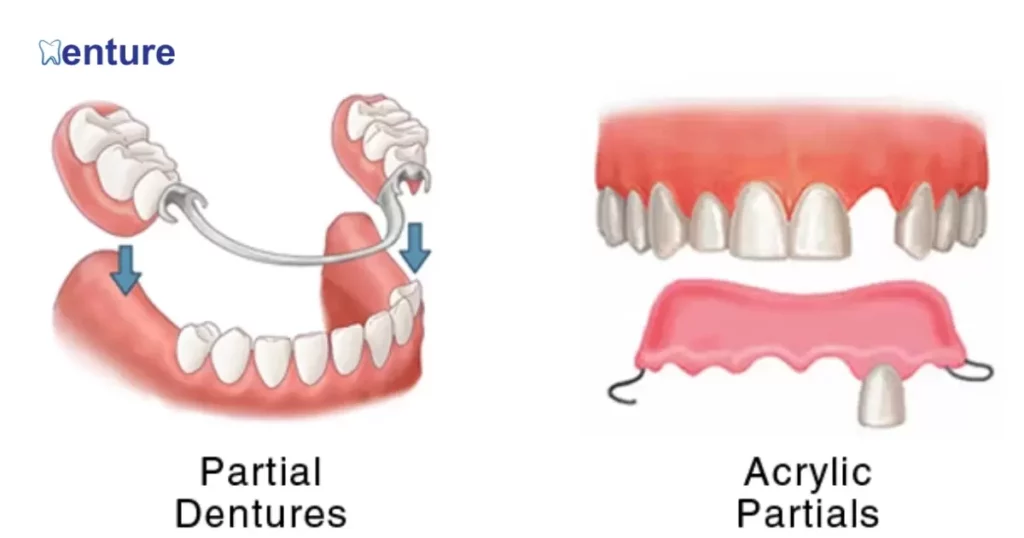
Partial dentures are custom-made dental appliances used when you’re missing some, but not all, of your teeth. They consist of replacement teeth attached to a gum-colored base. To stay put, they rely on a clever design.
These dentures have metal or plastic clasps that grip onto your natural teeth for support. They don’t slip or slide when you eat or talk, thanks to this secure connection. Partial dentures, in essence, complete the puzzle of your smile, blending in naturally and helping you regain your confidence.
How Should a Partial Denture Fit?
A well-fitting partial denture should feel snug but not tight. It should sit comfortably against your gums and existing teeth, like a missing puzzle piece. The edges should be smooth, and there shouldn’t be any painful pressure points. If your partial denture fits properly, you’ll be able to eat, speak, and smile with ease.
To ensure a good fit, your dentist will take precise measurements and make any necessary adjustments. They’ll also guide you on caring for your partial denture to maintain its fit over time. With the right fit, your partial denture will blend seamlessly into your smile, offering both function and confidence.
Will Dentures Alter My Appearance?
Dentures are custom-made to fit your mouth and restore your smile, but they might take some time to get used to. In some cases, they can slightly change your facial appearance, particularly if you’ve lost a lot of teeth. However, skilled dentists aim to create dentures that look as natural as possible, so most changes are minimal and hardly noticeable.
It’s essential to communicate openly with your dentist about your concerns and expectations. They can help design dentures that not only improve your oral health but also maintain the appearance you desire.
Will I Have Difficulty Eating With New Dentures?
Getting used to eating with new dentures may take some time. Initially, you might experience difficulty as your mouth adjusts to these dental appliances. Chewing softer foods and cutting them into smaller pieces can make the transition smoother. With practice and patience, most people adapt to eating comfortably with dentures.
Your dentist can offer guidance on adjusting to dentures and suggest specific foods that are easier to eat during the initial phase. Over time, you’ll likely find that eating with new dentures becomes second nature, allowing you to enjoy a wide range of foods just like before.
Will Dentures Affect My Speech?
When you first get dentures, they might affect your speech. Your tongue and mouth need to adapt to the new teeth. You may experience some difficulty pronouncing certain words initially.
Don’t worry, though. With practice, your speech will improve. Your mouth muscles will adjust to the dentures, and you’ll regain your natural way of speaking. If you have concerns, your dentist can provide guidance and tips to make the adjustment smoother. So, give it some time, and soon you’ll be talking just like before, with your new dentures feeling like a natural part of your smile.
FAQ’s
Are partial dentures comfortable to wear?
Yes, with proper fitting and adjustments, partial dentures can be comfortable to wear.
Will partial dentures affect my ability to eat?
Initially, eating may require some adjustment, but most people adapt quickly and can eat comfortably with partial dentures.
How do I care for my partial dentures?
To care for your partial dentures, clean them daily, soak them when not in use, and handle them with care to maintain their shape and function.
Conclusion
how partial dentures stay in place is essential for those considering these dental appliances. You’ve learned that they rely on snug fits and clever attachments to your natural teeth. It’s normal for them to affect your speech initially, but with practice, you’ll speak comfortably again. If you’re patient and consult your dentist, these dentures can become a seamless part of your smile.
So, if you’re on the path to getting partial dentures, give your mouth some time to adjust. They may impact your speech and eating habits temporarily, but your dedication and your dentist’s advice will make these challenges short-lived. Rest assured, with proper care and practice, your partial dentures will help you maintain a confident and beautiful smile.
